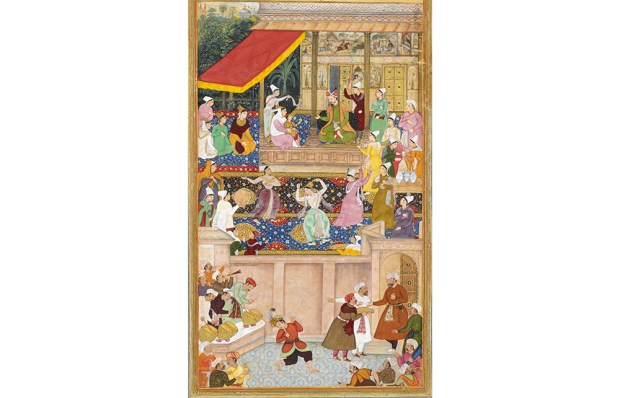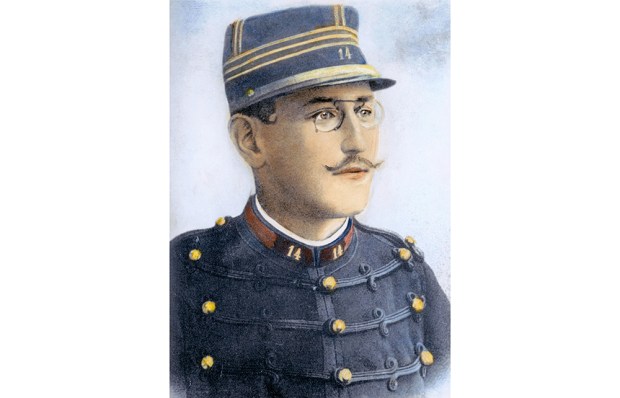The great age of the Scottish autodidact must have ended a century ago, but it had a prodigious impact while it lasted. To read John Gross’s The Rise and Fall of the Man of Letters (1969) is to be plunged headfirst into a world of kenspeckle lads studying Nietzsche behind the crankshaft and miners quoting Burns to each other as they were winched up from the Lanarkshire coal face. If James Campbell (born 1951) isn’t quite a figure to rank with James Thompson the Younger (1834-82) or the Rev. George Gilfillan (1813-78), to name a couple of Gross’s exemplars, then he is certainly their spiritual heir – a man whose preliminary knowledge was picked up on his own and whose take on contemporary literature is all the more pointed for having been acquired outside the usual channels of school and university.
Gross turns up towards the end of Just Go Down to the Road (the title derived from a friendly Easter Ross shepherd’s advice on how to get a lift) as a reserved yet encouraging editor of the TLS with whom Campbell begins a four-decade engagement in the early 1980s. Before this introduction to the landscapes of modern Grub Street come a dozen or so chapters on the bohemian life, as lived out by a near-hoodlum (outright violence is narrowly avoided) who quits school the moment his termly report card becomes impossible to forge, takes an apprenticeship in the printing industry, grows his hair, leaves home – the Campbells are solidly respectable lower-middle class – and, in out-at-elbows hippy-era Glasgow, starts hanging out with some very strange people indeed.
You suspect at an early stage in the proceedings that something is going on here, and that all manner of prime cultural plums are about to be dredged up out of the adolescent bran tub; and, sure enough, the young Jim attracts formative influences like a Highland rambler going down under a swarm of midges. Billy Connolly, then part of a folk group called the Humblebums, sits in the doctor’s surgery; Big Bill Broonzy, the innovative but permanently stoned folk guitarist Davey Graham and the Incredible String Band are there on the record racks; and London calls, in the shape of Powis Square communes (the headquarters of the capital’s counter-culture, pre-gentrification) and an audience with Mick Farren, the lead singer of the legendary Social Deviants.
For all the wide-eyed reminiscence (‘I travelled without a rucksack, just a shoulder bag, which contained a sweater, an extra T-shirt, a copy of Cain’s Book by Alexander Trocchi and another paperback or two’), Campbell’s attitude to the Age of Aquarius is curiously double-edged. He takes far fewer drugs than anyone else around and is usually shrewd enough to gauge the future literary value of some of the places he inhabits. The Greek island of Spetses, for example (there’s a glorious photo of Campbell on a horse in which he seems to have stepped from a Vashti Bunyan album cover), is the setting for John Fowles’s The Magus (1966). Residence there will eventually enable him to blag one of his first literary commissions.
And so the road winds on – to a kibbutz, where the man in the hut next door who consents to accompany his guitar-picking on bongos is revealed to be Peter Green from Fleetwood Mac; back to Scotland, where Campbell becomes a non-student interviewer on a student magazine (‘I was just about to give myself a fix,’ Trocchi explains as he opens the door) before transferring to academe in his mid-twenties, and into the foothills of the literary life:
Eventually I reached an understanding that the kind of writing I liked kept its feet on the ground. It was a Scottish style: commonsensical, sceptical, impatient of cant, alert to the value of subterranean humour.
There is plenty of subterranean humour on display in Just Go Down to the Road, much of it to do with the vagrant entourage maintained by the American novelist James Baldwin, into whose house in the south of France Campbell finesses himself, whose articles he commissions (‘I’m working on it baby, I’m working on it’) and whose biography he ultimately writes. Ditto some beguiling glimpses into a bygone world of books. I was interested to discover that Craig Raine was once denied the deputy literary editorship of the New Statesman on the grounds that he was ‘too mad’.
Got something to add? Join the discussion and comment below.
Get 10 issues for just $10
Subscribe to The Spectator Australia today for the next 10 magazine issues, plus full online access, for just $10.
You might disagree with half of it, but you’ll enjoy reading all of it. Try your first month for free, then just $2 a week for the remainder of your first year.














Comments
Don't miss out
Join the conversation with other Spectator Australia readers. Subscribe to leave a comment.
SUBSCRIBEAlready a subscriber? Log in